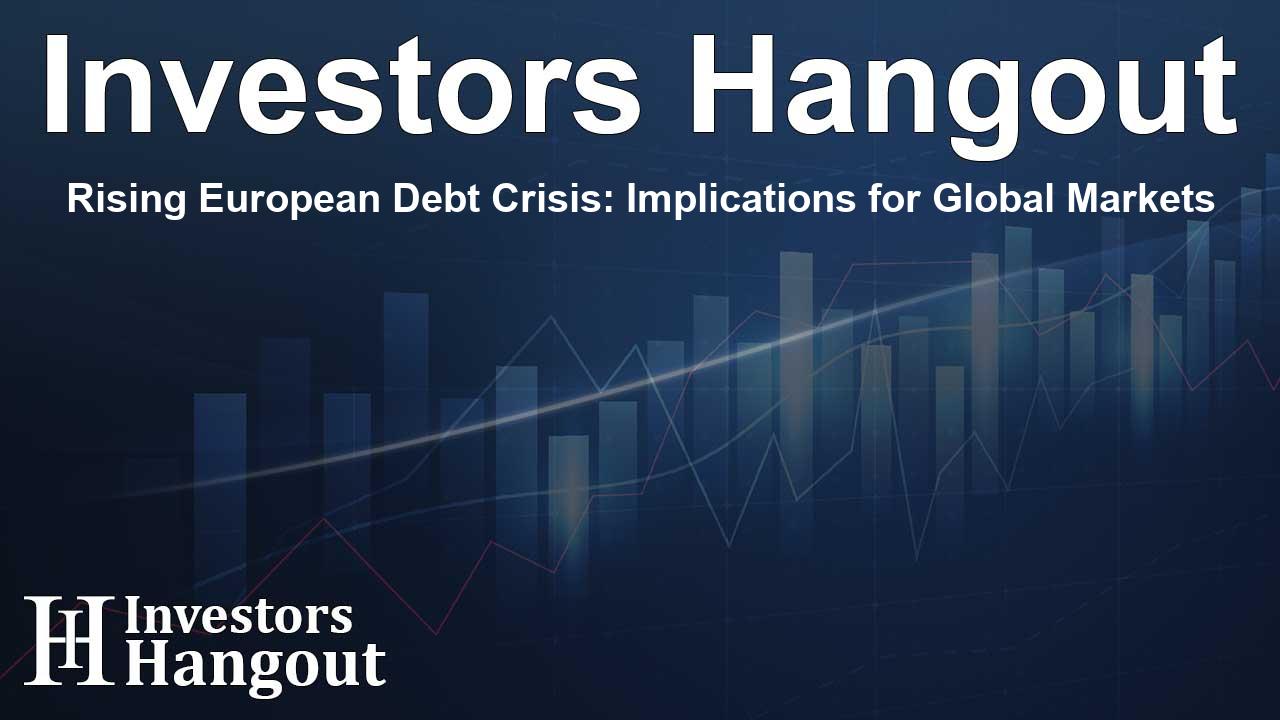Rising European Debt Crisis: Implications for Global Markets

Rising European Debt Crisis: Implications for Global Markets
Europe is currently navigating a complex landscape defined by soaring debt levels and sluggish growth. As countries like France grapple with increasing bond yields, the challenges of financing become ever more pronounced. In addition, recent changes in leadership and economic policies in key nations have raised eyebrows among investors and economists alike.
France's Debt Dilemma
In recent weeks, France has found itself in uncharted waters, as its 10-year bond yields have climbed above those of Spain for the first time in many years. The new government led by Prime Minister Michel Barnier has not catalyzed the desired confidence in the financial markets, leaving many analysts pondering the long-term implications of these shifts. Increasing yields in France are seen as a warning signal for the EU’s collective financial stability.
UK's Debt Situation
The United Kingdom is facing unprecedented challenges as its public debt has surged to 100% of GDP for the first time since 1961. Projections from economic bodies indicate that this figure could balloon to a staggering 274% by the year 2073. The previous cycles of debt increases were largely driven by wartime expenditures, in contrast to today's scenario where rising public costs overshadow government revenues, creating a precarious fiscal balance.
The Future of UK Economic Policies
This alarming trend puts pressure on UK officials to reconsider spending and taxation policies. A strong focus on sustainable growth and limiting public spending may be vital to regaining fiscal health. If effective measures are not implemented soon, the UK could face a debt spiral that affects its economic viability.
Swiss National Bank and Rate Cuts
Transitioning over to the Swiss scene, the Swiss National Bank (SNB) has made headlines by lowering its key interest rate by 25 basis points, bringing it to 1.00%. Mr. Tony Jordan, at the helm during this transition, indicated that softening inflation rates and a robust Swiss franc necessitated this adjustment. Though some view this rate cut as simply adjusting policy back to neutral, the implications for regional monetary policies are significant.
Key factors influencing the SNB's decision include inflation rates dropping beyond expectations and the appreciation of the Swiss franc against other currencies. The bank’s flexibility in monetary policy may allow it to adapt to the challenges posed by inflation and economic growth, which remain in mutual contradiction.
China's Fiscal Stimulus Initiative
Meanwhile, the People's Bank of China recently announced a bold stimulus package aimed at reviving the economy and stabilizing its property markets. Key components of this initiative include reductions in mortgage rates and a significant cut in the reserve requirement ratio. As a result, many investors are left to wonder whether these measures will be sufficient to strengthen China’s struggling financial landscape.
Impact on Global Markets
The immediate response to these stimulus measures has been a significant surge in the CSI 300 index, reflecting a spark of optimism among investors. However, the broader implications of China's strategy—especially in light of the ongoing property market bubble—will require close scrutiny from financial experts around the world.
The Resilience of Gold
Amidst these fluctuations in global financial markets, gold continues to shine brightly. With a remarkable 30% increase since the beginning of the year, gold is experiencing its best performance of the century. Factors such as escalating international tensions and ongoing fiscal uncertainties in large economies underscore its role as a safe haven for investors seeking stability.
Moreover, potential risks associated with rising public debt and interest obligations are strengthening investor resolve to turn towards gold as a liquidity hedge. Concerns laid out by financial institutions regarding the sustainability of fiscal policies in major economies only enhance gold's appeal in turbulent times.
Frequently Asked Questions
What are the current challenges facing the European economy?
European economies are grappling with soaring public debt levels and sluggish growth, leading to concerns about long-term financial stability.
How has France's economic situation changed recently?
France's 10-year bond yields have now surpassed those of Spain, marking a significant shift in financial confidence within the region.
What impact does the Swiss National Bank's rate cut have?
The SNB's recent rate cut aims to adjust monetary policy amidst falling inflation and a strong franc, influencing economic conditions in Europe.
What measures is China taking to stimulate its economy?
China is unveiling a broad stimulus package that includes cutting mortgage rates and lowering the reserve requirement for banks to boost economic activity.
Why is gold gaining popularity among investors?
Growing uncertainties surrounding public debt and geopolitical tensions have led investors to turn towards gold as a stable asset in times of turmoil.
About The Author
Contact Dylan Bailey privately here. Or send an email with ATTN: Dylan Bailey as the subject to contact@investorshangout.com.
About Investors Hangout
Investors Hangout is a leading online stock forum for financial discussion and learning, offering a wide range of free tools and resources. It draws in traders of all levels, who exchange market knowledge, investigate trading tactics, and keep an eye on industry developments in real time. Featuring financial articles, stock message boards, quotes, charts, company profiles, and live news updates. Through cooperative learning and a wealth of informational resources, it helps users from novices creating their first portfolios to experts honing their techniques. Join Investors Hangout today: https://investorshangout.com/
The content of this article is based on factual, publicly available information and does not represent legal, financial, or investment advice. Investors Hangout does not offer financial advice, and the author is not a licensed financial advisor. Consult a qualified advisor before making any financial or investment decisions based on this article. This article should not be considered advice to purchase, sell, or hold any securities or other investments. If any of the material provided here is inaccurate, please contact us for corrections.
